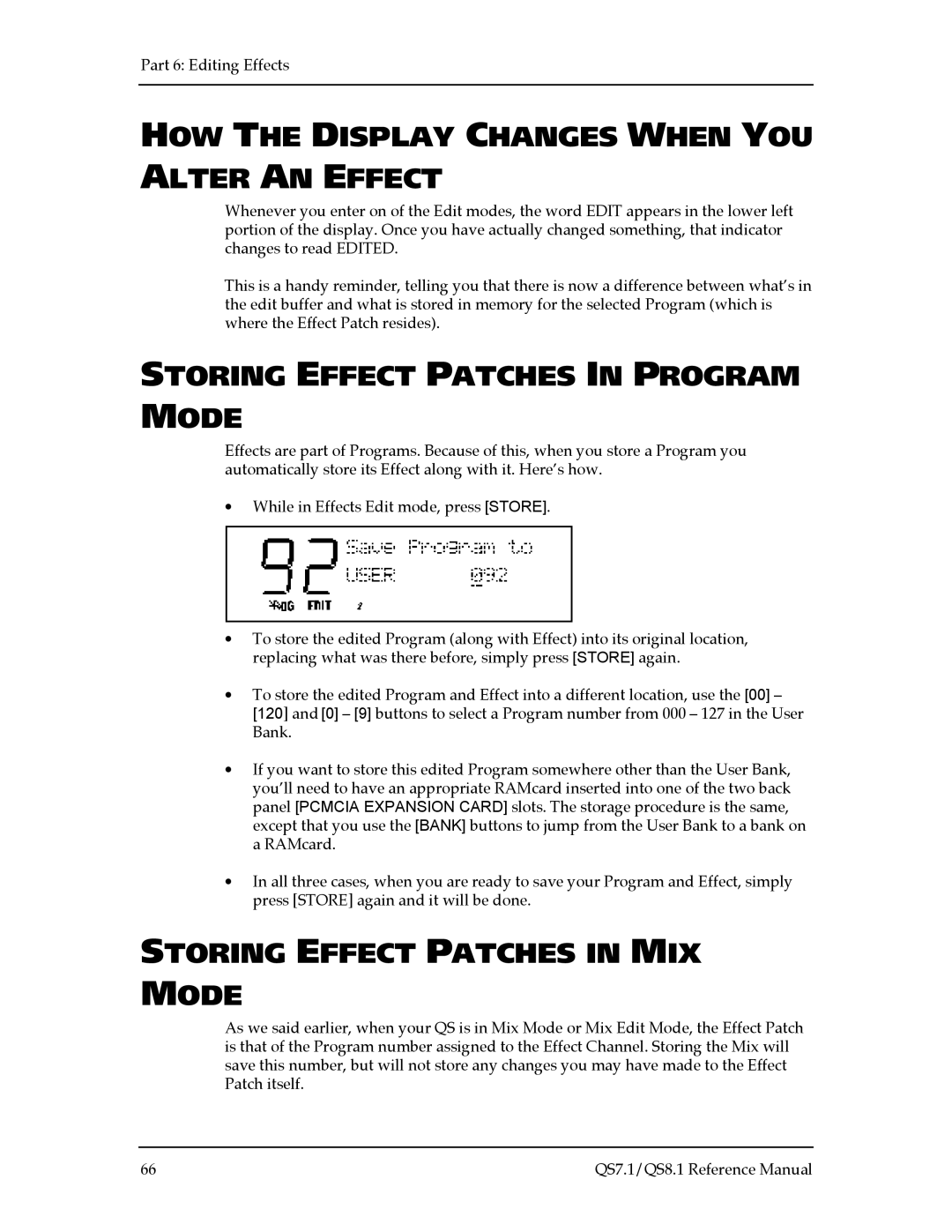
Part 6: Editing Effects
HOW THE DISPLAY CHANGES WHEN YOU ALTER AN EFFECT
Whenever you enter on of the Edit modes, the word EDIT appears in the lower left portion of the display. Once you have actually changed something, that indicator changes to read EDITED.
This is a handy reminder, telling you that there is now a difference between what’s in the edit buffer and what is stored in memory for the selected Program (which is where the Effect Patch resides).
STORING EFFECT PATCHES IN PROGRAM MODE
Effects are part of Programs. Because of this, when you store a Program you automatically store its Effect along with it. Here’s how.
∙While in Effects Edit mode, press [STORE].
∙To store the edited Program (along with Effect) into its original location, replacing what was there before, simply press [STORE] again.
∙To store the edited Program and Effect into a different location, use the [00] – [120] and [0] – [9] buttons to select a Program number from 000 – 127 in the User Bank.
∙If you want to store this edited Program somewhere other than the User Bank, you’ll need to have an appropriate RAMcard inserted into one of the two back panel [PCMCIA EXPANSION CARD] slots. The storage procedure is the same, except that you use the [BANK] buttons to jump from the User Bank to a bank on a RAMcard.
∙In all three cases, when you are ready to save your Program and Effect, simply press [STORE] again and it will be done.
STORING EFFECT PATCHES IN MIX MODE
As we said earlier, when your QS is in Mix Mode or Mix Edit Mode, the Effect Patch is that of the Program number assigned to the Effect Channel. Storing the Mix will save this number, but will not store any changes you may have made to the Effect Patch itself.
66 | QS7.1/QS8.1 Reference Manual |
